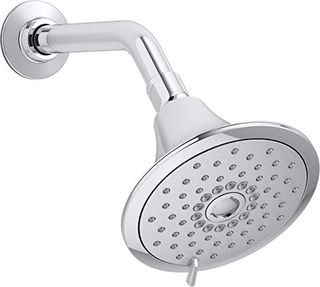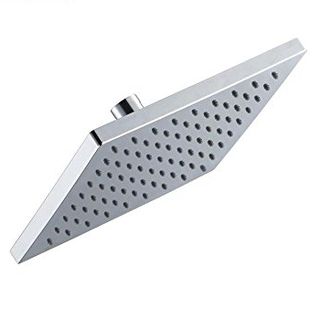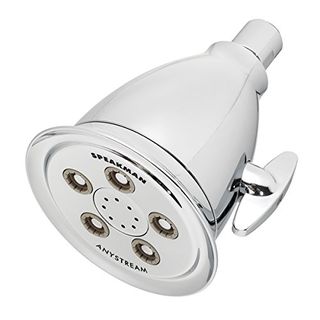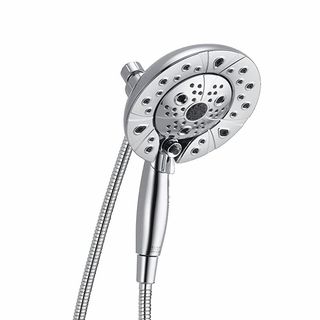Trump Administration New Showerhead Rules
- In a new proposal, the Department of Energy wants to redefine “showerhead.”
- President Trump heralds this as a victory, the same way he rolled back the Clean Water Act.
- Showerhead regulations are nearly 30 years old, and we’re all still washing our hair like usual.
A new proposed change to Department of Energy (DoE) water compliance coincides with remarks President Donald Trump made last month about showerheads:
“We’re bringing back consumer choice in home appliances so that you can buy washers and dryers, showerheads and faucets. So showerheads — you take a shower, the water doesn’t come out. You want to wash your hands, the water doesn’t come out. So what do you do? You just stand there longer or you take a shower longer? Because my hair — I don’t know about you, but it has to be perfect. Perfect.”
In the same speech, Trump called for “reining in EPA overreach” by both changing water regulations and rolling back restrictions on incandescent light bulbs.
In his speech, Trump directly linked both water and light bulbs to needing to look his best at any cost. The president suggested most Americans have plenty of water: “It’s called rain.” The Huffington Post has a great breakdown of the DoE proposal to adjust the regulatory definition of “showerhead”:
“Under rules Congress passed in 1992 in response to severe droughts, water flow from an entire showerhead is limited to 2.5 gallons per minute. The proposed change would allow manufacturers to apply that restriction to each nozzle on a showerhead.”
This definition has been in discussions for nearly 10 years, and the DoE says it wants to rely on a 2018 definition established by the American Society of Mechanical Engineers (ASME). The EPA high efficiency showerhead website still lists out these standards, but what the DoE proposal will change is what we mean when we even say showerhead.
If you install, say, a “full body” type of shower with a line of nozzles that march down the wall and then a rainfall showerhead at the top, that’s currently all considered one “showerhead” assembly, and must meet the 2.5 gallons per minute rule.
“Both the definition of showerhead and the 2.5 gpm standard were added to EPCA by the Energy Policy Act of 1992. From 1992 to 2013, DoE regulations did not contain a separate definition of ‘showerhead,’” the DoE report explains.
With the change, different kinds of nozzles could stand with their own individual 2.5 gallon limit. From the report:
“DoE proposes instead to define showerhead as that term is defined in the 2018 ASME standard, such that each showerhead in a product containing multiple showerheads would be considered separately for purposes of determining standards compliance, and only one of them would need to be turned on for testing.”
4 Perfectly Efficient Showerheads Trump Would Love
The part where just one has to be turned on is strange. If the regulation will legally allow each one to use its own 2.5 gallons, why not still test them all? How will regulators decide which one to turn on? And while Trump considers this a victory for the removal of regulations, it’s really just replacing one clause with another for showerheads that will still have to be inspected and tested. If you make someone grade 100 exams then tell them an 80 percent is an A instead of a 90 percent, they still have to grade all the exams.
? Make your inbox more awesome.
Environmental groups and consumer groups alike have commented on the proposal, partly because of how out of step it seems—the original law is almost 30 years old, and most people’s inadequate water pressure is caused by overburdened apartment building hot water heaters, mineral buildup on the hardware itself, or some other limitation that doesn’t involve the EPA at all.
Appliance Standards Awareness Project director Andrew deLaski summed it up in a blog post that followed the proposal: “Complaints about inadequate showerheads were frequent decades ago, immortalized in a 1996 Seinfeld episode. But for many years now, we’ve had a fix for poorly performing models, one that requires no action by the Trump administration.”
 VIGA Faucet Manufacturer
VIGA Faucet Manufacturer 



